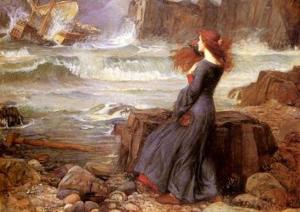| Author: | Samuel Hall Young | ISBN: | 9781465592132 |
| Publisher: | Library of Alexandria | Publication: | March 8, 2015 |
| Imprint: | Language: | English |
| Author: | Samuel Hall Young |
| ISBN: | 9781465592132 |
| Publisher: | Library of Alexandria |
| Publication: | March 8, 2015 |
| Imprint: | |
| Language: | English |
It was with the excitement of a veteran soldier going into a fresh battle that I teetered over the springy plank from the Rampart shore to the deck of the Yukon River steamboat. My year's outfit of "grub and duds," as the miners would put it, was aboard. I grasped the hand of Dr. Koonce, with whom I had just floated in an open boat down the Yukon twelve hundred miles. A fine fellow—"Kooncie"! We had been camping, and fishing, and packing, and boating together since the first of May, 1899, and it was now the middle of August. He was to stay at the new mining town of Rampart, build a church there and learn the joyous life of a pioneer missionary. What a queer mix-up of men on the crowded decks of the steamboat! Wild rumors of a ridiculous sort had reached the ears of gold hunters clear up the two thousand miles of the swift and crooked Yukon to Dawson. Gold! Not snugly reposing in the frozen gravel of deep gulches and canyons cut through the high hills—where respectable and orthodox gold ought to be; but gold on the wind-swept, stormy, treeless, exposed coast of Seward Peninsula—the tongue that impudent young Alaska sticks out at old Asia. Gold, like yellow corn-meal, in the beach-sands of Bering Sea, where nobody could lawfully stake a claim, but where anybody could go with shovel, pan and rocker and gather it up. Nuggets a-plenty and coarse gold—enticing shallow diggings—in the bed of Anvil Creek and other creeks and runlets in the hills, and the flat tundra about Nome. The reports of the new "strike," often wild and exaggerated, came as a life-saver to weary and discouraged thousands of Klondikers, who had packed their outfits over the terrible thirty miles of the Chilcoot Pass in the fall of '97 or the spring of '98, sawed the lumber themselves in the "armstrong sawmill," sailed their clumsy boats through the lakes, shot the rapids of the Upper Yukon, spent the summer of '98 and the winter that followed surging here and there on "wildcat" stampedes or putting down "dry" holes on unprofitable lays, and were now eagerly snatching at this new straw, hoping to "strike it" on the Nome beach. From Dawson, Forty Mile, Eagle, Circle, Fort Yukon; from wood camps and prospectors' tents along the Yukon, and now from Rampart, these bearded, battered, sun-blistered men came rushing aboard the steamboat.
It was with the excitement of a veteran soldier going into a fresh battle that I teetered over the springy plank from the Rampart shore to the deck of the Yukon River steamboat. My year's outfit of "grub and duds," as the miners would put it, was aboard. I grasped the hand of Dr. Koonce, with whom I had just floated in an open boat down the Yukon twelve hundred miles. A fine fellow—"Kooncie"! We had been camping, and fishing, and packing, and boating together since the first of May, 1899, and it was now the middle of August. He was to stay at the new mining town of Rampart, build a church there and learn the joyous life of a pioneer missionary. What a queer mix-up of men on the crowded decks of the steamboat! Wild rumors of a ridiculous sort had reached the ears of gold hunters clear up the two thousand miles of the swift and crooked Yukon to Dawson. Gold! Not snugly reposing in the frozen gravel of deep gulches and canyons cut through the high hills—where respectable and orthodox gold ought to be; but gold on the wind-swept, stormy, treeless, exposed coast of Seward Peninsula—the tongue that impudent young Alaska sticks out at old Asia. Gold, like yellow corn-meal, in the beach-sands of Bering Sea, where nobody could lawfully stake a claim, but where anybody could go with shovel, pan and rocker and gather it up. Nuggets a-plenty and coarse gold—enticing shallow diggings—in the bed of Anvil Creek and other creeks and runlets in the hills, and the flat tundra about Nome. The reports of the new "strike," often wild and exaggerated, came as a life-saver to weary and discouraged thousands of Klondikers, who had packed their outfits over the terrible thirty miles of the Chilcoot Pass in the fall of '97 or the spring of '98, sawed the lumber themselves in the "armstrong sawmill," sailed their clumsy boats through the lakes, shot the rapids of the Upper Yukon, spent the summer of '98 and the winter that followed surging here and there on "wildcat" stampedes or putting down "dry" holes on unprofitable lays, and were now eagerly snatching at this new straw, hoping to "strike it" on the Nome beach. From Dawson, Forty Mile, Eagle, Circle, Fort Yukon; from wood camps and prospectors' tents along the Yukon, and now from Rampart, these bearded, battered, sun-blistered men came rushing aboard the steamboat.















